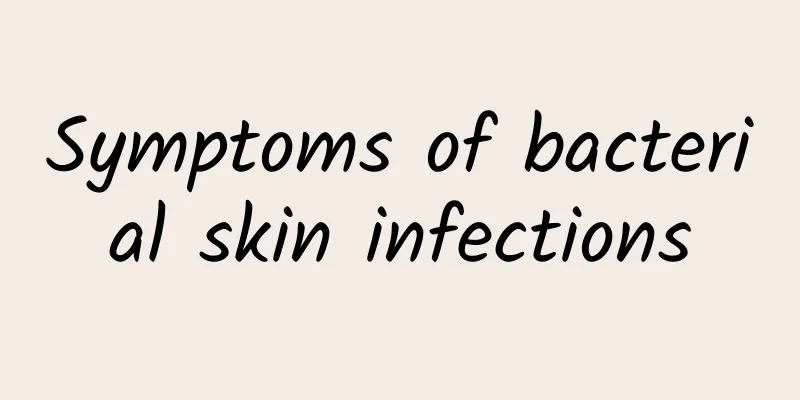Symptoms of bacterial skin infections

|
Skin infections are quite common in our daily life, especially bacterial infections, which often cause serious damage to the skin. The hands, face, and neck are the most common sites of skin infection. The most common clinical manifestations are redness, swelling, heat, pain, and pus. That is, the skin will become red, causing swelling, fever, and pain. In severe cases, symptoms of pus and blood will appear. Symptoms of bacterial skin infections Bacterial skin diseases can occur on the skin all over the body, most commonly in exposed areas such as the head, face, neck, and hands, and are manifested by redness, swelling, heat, pain, and pus in the affected area. Clinical classification is based on the following methods. 1. According to the bacterial species, it can be divided into coccal and bacillary skin diseases. Bacterial skin diseases are caused by staphylococcal or streptococcal infections and mostly occur on normal skin. Common ones include impetigo, folliculitis, furunculosis, scarlet fever, meningococcal rash, toxic shock syndrome, etc. Skin diseases caused by bacilli often occur on the basis of existing skin lesions, mainly skin tuberculosis and leprosy, and others such as typhoid, paratyphoid, erysipelas, anthrax, plague, etc. 2. According to the course of the disease, it can be divided into acute and chronic. Most bacterial skin diseases, especially coccal skin diseases, are acute and have a short course; only a few are chronic, such as cutaneous tuberculosis and leprosy.treat The principles of treatment are anti-inflammatory, bactericidal, drying and astringent to prevent the spread of inflammation. 1. Topical treatment: Topical application of non-irritating medications that have astringent, anti-inflammatory and antiseptic properties. When the pustule is large, extract the blister fluid; if the pustule has ruptured and scabbed, it can be cleaned or wet-compressed with potassium permanganate solution or neomycin solution. For those with smaller skin lesions, you can directly use a cotton swab dipped in povidone-iodine solution. For those with larger skin lesions, you can use erythromycin ointment, mupirocin ointment, etc. after local wet compress to relieve pain and promote early healing of the erosion surface. 2. Systemic treatment: Patients with obvious systemic symptoms should take antibacterial drugs in time. If necessary, select sensitive antimicrobial drugs based on the results of bacterial sensitivity tests. If accompanied by fever, antipyretic drugs can be used for treatment |
<<: Symptoms of a torn cruciate ligament
Recommend
Aflatoxin in Peanut Oil
What is aflatoxin in peanut oil? Many people are ...
Is nevus of Ota hereditary? Detailed explanation of the causes of Nevus of Ota
Many people don’t know much about Nevus of Ota. I...
How to reduce the swelling of double eyelids quickly
After double eyelid surgery, edema will occur, wh...
What should not be eaten after medical abortion?
After medical abortion, you must pay attention to...
The benefits of washing your face with toothpaste and sugar
Many people who love beauty will develop some whi...
Is it common to have a second child earlier?
With the opening of the second child policy, many...
Meridian massage exercises can enhance breast size. Recommended massage techniques for breast enhancement
Traditional Chinese medicine has a long history, ...
What to do if eczema is red and swollen
Eczema can be said to be a relatively common dise...
Limbs itch and bumps appear when scratched
When our limbs feel itchy, we will scratch them r...
What is the safest way to lose weight through acupuncture?
Acupuncture for weight loss can actually be effec...
What to do if polyps grow on the vocal cords
Many people need to pay attention to their diet a...
Beware of seven common urticaria allergens
Although spring is a season when everything comes...
How much is one pound of Ganoderma lucidum spore powder
Ganoderma lucidum spore powder is the seeds relea...
What are the precautions for intravenous calcium supplementation?
Veins are very important for health because the h...
What causes lower back pain after drinking?
Alcohol is very common in real life, and nowadays...









